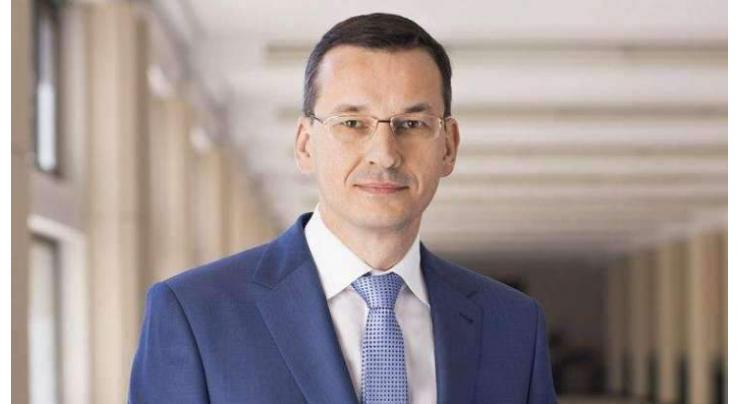
Visegrad Group Reiterates Need For Tightened Migration Control At EU Borders - Warsaw
Umer Jamshaid Published September 24, 2020 | 07:44 PM

The countries of the Visegrad Group Poland, Czech Republic, Slovakia and Hungary advocate for strict migration control at the borders of the European Union, Polish Prime Minister Mateusz Morawiecki said on Thursday in the wake of the announcement of the New Pact on Migration and Asylum by the EU
WARSAW (UrduPoint News / Sputnik - 24th September, 2020) The countries of the Visegrad Group Poland, Czech Republic, Slovakia and Hungary advocate for strict migration control at the borders of the European Union, Polish Prime Minister Mateusz Morawiecki said on Thursday in the wake of the announcement of the New Pact on Migration and Asylum by the EU.
The pact was unveiled on Wednesday. Initially, its presentation was scheduled for September 30 but was urgently rescheduled due to the recent major fire in the Moria migrant camp on the Greek island of Lesbos, which hosted some 13,000 people.
"We have an unambiguous position on this issue. There are principles that we adhere to � the need to ensure the toughest and most effective policy regarding border controls, assistance in the areas where potential migrants can come from to Europe," Mateusz told reporters, as broadcast by the Polish television, following a meeting with European Commission President Ursula von der Leyen in Brussels that was also attended by Czech and Hungarian prime ministers.
The official noted that problems must be resolved on the ground, so as not to deal with such large and highly controversial proposals regarding migration policy adopted over the previous years. In particular, the minister referred to the introduction of mandatory quotas on migrant redistribution to help Greece and Italy cope with the mass influx of refugees in 2015. Some countries, including the Visegrad Group, lashed out at the plan and refused to implement it.
The new pact announced by von der Leyen aims at distributing migrants from EU states of migrants' first entry, such as Greece and Italy, among all 27 members of the bloc, so that they all can share the burden of migration flow. In addition, unlike previous plans, the new one provides the European countries with two options they can either accept migrants on their territories or pay for their repatriation if they deny them entrance.
Related Topics
Recent Stories

DC for provision of facilities to people in Lasbela

Solar storm could bring auroras, power and telecoms disruptions

Court grants interim bail to PTI leaders

Ulema, Mashaykh call for political accountability, collaboration for Pakistan's ..

SHRC asks NADRA to issue CNICs to transgender as per law

Flash floods kill 50 in one day in north Afghanistan

CDA chief expresses commitment to promoting modern-day technologies

By wide margin, UN General Assembly votes to back Palestinian bid for membership ..

Musadik slams PTI's political approach as provocative

Saudi Arabia to test flying taxis, drones this Hajj season: Minister

Governor for making comprehensive policy to protect universities from financial ..

Ethiopian envoy calls on Sindh Governor Kamran Khan Tessori
More Stories From World
-

Solar storm could bring auroras, power and telecoms disruptions
13 minutes ago -

Flash floods kill 50 in one day in north Afghanistan
13 minutes ago -

By wide margin, UN General Assembly votes to back Palestinian bid for membership; Pakistan backs
5 minutes ago -

Xi Jinping leaves Hungary, ends European tour: TV
4 minutes ago -

S. Africa's top court hears critical Zuma election case
5 minutes ago -

Panama president-elect pledges to deport migrants who cross Darien Gap
2 hours ago
-

Top opponent of India PM Modi leaves prison on bail
3 hours ago -

ICUBE-Q's initial images from space a historic day: Ambassador Hashmi
4 hours ago -

Third week of evidence wraps at Trump's criminal trial
4 hours ago -

Madinah : 3,485 Pakistani Hujjaj arrive in seamless flight operation
4 hours ago -

UN, EU officials condemn 'escalation' of violence against UNRWA
4 hours ago -

Russia attacks Ukraine's northeast in new ground offensive
5 hours ago











